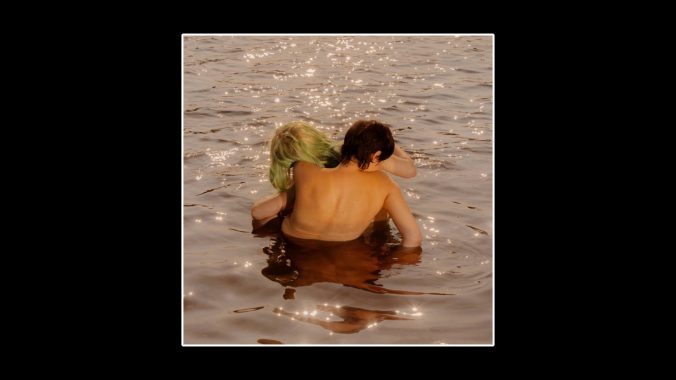Blue Raspberry is a Zingy, Bright and Just Sweet Enough Sophomore Effort From Katy Kirby
The NYC-by-Nashville singer/songwriter’s latest is a smart, sexy thinkpiece on queer romance in a world on fire.

No one’s ever seen a blue raspberry in the wild. Or, really, anywhere—because they don’t exist. And yet, Katy Kirby argues, when its tart, zippy sweetness hits your tongue, it doesn’t matter if it’s real or not. To you, it is. Kirby whacks at the binary between the false and the genuine on her sophomore album by the same name, a sardonic, sweeping effort by a songstress whose first LP was defined by elegant lyricism and a sweet, neat sense of self-discipline. Many of the tableaux Kirby introduced in her first album, the triumph that was 2021’s Cool Dry Place, find a new home on her sophomore effort: tantalizingly slow crescendos, intimate, dialogic songwriting, silken sopranos and minimalist guitars. But on Blue Raspberry, Kirby announces she’s throwing the caution that described her first effort to the wind, sonically embracing the messiness she felt personally while composing a batch of songs about her first queer relationship.
Blue Raspberry is an album emphasized by its lyrics. Kirby is a gifted conductor and a confident wordsmith, filling each song with effortless, quadrisyllabic words and tongue-in-cheek turns of phrase. The cheeky pun “Mutually assured distraction,” the LP’s opening lyrics on first song “Redemption Arc,” promise the listener a verbose, thoughtful project zeroed in on the pains and pleasures of love. So does the refrain of “Drop Dead,” the album’s centerpiece: “Let me drop dead, Gorgeous,” Kirby croons smilingly over quirky homestyle pianos and soft drums. As the song rises and falls in blurry swells, her refrain anchors it in an apologetic self-awareness.
Perhaps the most impressive element of Kirby’s album, really, is its self-anchoring. A number of motifs arise and flutter: lab-grown diamonds and almost-passing common stones, shining teeth and impassable fences, refractions of light through cheap plastic and late-millennial economic woes. There is a phenomenal neatness to Kirby’s writing, an effortless intentionality whose thematics never feel forced. “Cubic Zirconia,” arguably the album’s magnum opus and the manifestation of one of its most primary themes, glimmers in the sun with insistently arpeggiating violins and cartwheeling guitar riffs. “Why wouldn’t that be enough?” she asks herself, one of the album’s many glimpses into Kirby’s breathtakingly economic profundity. “I’m still craving that unstable shine…I crush it up in my hands for fun, precious cargo and all that,” she announces defiantly as the song sparkles toward climax.
These moments are held gently by an overarching throughline to Kirby’s career, one brought from her youth in eensy Spicewood, Texas. There, she learned about music through worship songs. A Biblical overlay laces the album with a shimmering and familiar religious backdrop—not one of belief, but of daring, erudite reckoning. In using divine tales to describe her relationship to the deity of her lover, Kirby pays homage to—and strikes at—the moral coda which ruled her childhood. She mentions covenants, mercy, oaths. The salt of Gomorrah. Jesus’s sermons from the mount. All of it comes in the context of a sensuous, ill-fated queer affair. This throughline accompanies other, unabashedly modern-day ones: candy, plastic, recessions. This is not an album about God; it is an album which uses God as an artistic vessel amid many to make its point.
-

-

-

-

-

-

-

-

-

-

-

-

-

-

-

-

-

-

-

-

-

-

-

-

-

-

-

-

-

-

-

-

-

-

-

-

-

-

-

-








































